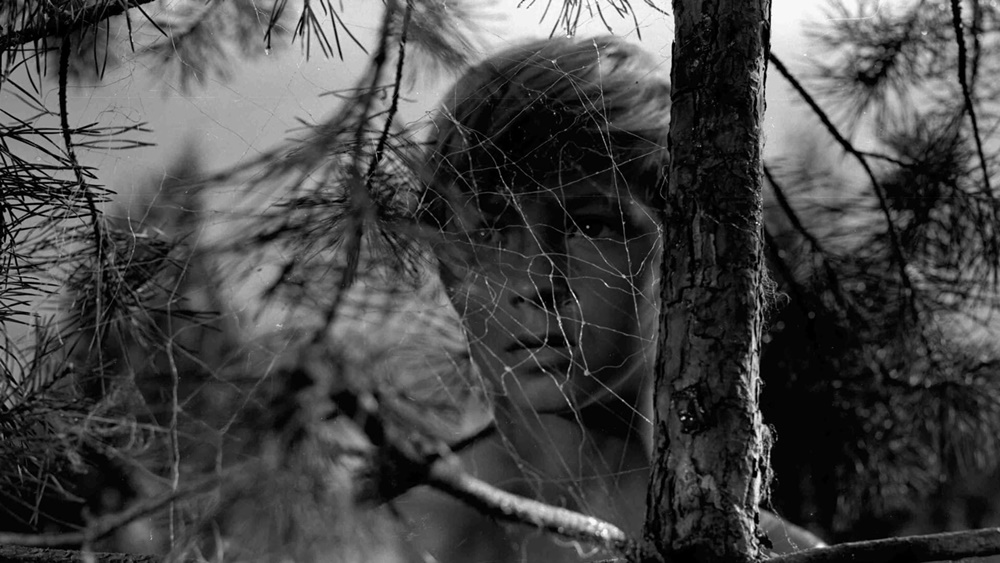A poetic war film, if there ever was one, about the loss of childhood innocence shot in a dreamy style by the legendary Tarkovsky.
Dir. Andrei Tarkovsky
1962 | Soviet Union | Drama/War | 95 mins | 1.33:1 | Russian
PG (passed clean) for some mature themes
Cast: Nikolay Burlyaev, Valentin Zubkov, Evgeniy Zharikov
Plot: During WWII, 12-year old Ivan works as a spy on the eastern front. The small Ivan can cross the German lines unnoticed to collect information. Three Soviet officers try to take care of this boy-child.
Awards: Won Golden Lion (Venice)
Source: MosFilm
Accessibility Index
Subject Matter: Moderate
Narrative Style: Slightly Complex
Pace: Slow
Audience Type: General Arthouse

(Reviewed on Criterion Blu-ray – first published 18 May 2014)
Spoilers: Mild
Andrei Tarkovsky took over the reins of a troubled production and made it distinctively his own. In the process, he made his first feature, which then won the Golden Lion at Venice Film Festival.
He would direct only six more narrative features before passing away way too soon, each a masterpiece in its own right. I always describe him as the Stanley Kubrick of Russian cinema. And I think very few would disagree that Tarkovsky belongs to the highest echelons of filmmaking.
Ivan’s Childhood is a powerful film about the loss of childhood innocence as inflicted and affected by war. It plays out from the point-of-view of Ivan (though not always entirely), who helps to alert the Soviet army of a possible German attack. He is young and small, perfect to do reconnaissance work for his country without arousing suspicion in the enemy.
Tarkovsky has always been fascinated by art, poetry, dreams and memories. These are recurring themes and motifs of his work. It is then of no surprise to see, in retrospect, Ivan’s Childhood beginning and ending with a dream, or perhaps a memory.
“If a well is really deep, you can see a star down there even in the middle of a sunny day.”
He creates a dreamy atmosphere, at times surreal, at times eerie. A master of mood, Tarkovsky intercuts dreams/memories with reality. The dreams/memories show us how life was before WWII – idyllic and peaceful. Occasionally there are hallucinations, and they show Ivan haunted by the horrors of war.
The film is for most parts a quiet drama with some outstanding sequences that rely on light, shadow, and movement in difficult environmental conditions. Of particular note are the scenes involving Ivan treading through a waterlogged and half-burnt woods.
Made during a time when Russian cinema had a post-WWII renaissance, Ivan’s Childhood bears thematic similarities to films like The Cranes Are Flying (1957) and Ballad of a Soldier (1959) most of which eschew the grand, patriotic war epic for more intimate, personal stories of children and families affected by the war.
Tarkovsky’s breakthrough first picture is a must-watch. It is a poetic war film, if there ever was one, bringing to life the psychological impact of war on a boy, yet retaining a sense of timeless but contained beauty of a world that would inevitably be shattered.
Grade: A-
Trailer:












[…] is beautifully photographed by Vadim Yusof (Ivan’s Childhood, 1962; Andrei Rublev, 1966), and ends with a satisfying epilogue that provides the film with its […]
LikeLike